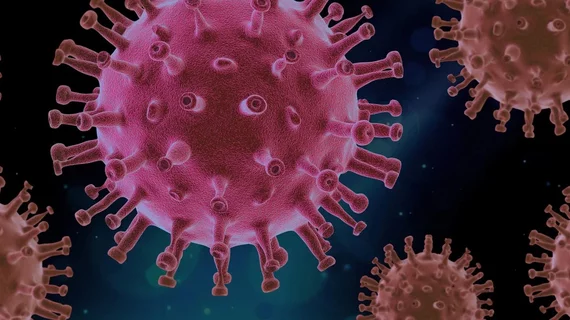New ACR registry selected as imaging repository for ongoing study into COVID-19 treatments
The Society of Critical Care Medicine announced Tuesday that it will utilize the American College of Radiology’s recently launched COVID-19 imaging registry for its study investigating top treatment strategies to combat the pandemic.
As part of the collaboration, ACR’s Center for Research and Innovation will gather and house all diagnostic scans for SCCM’s Viral Infection and Respiratory Illness Universal Study, or VIRUS. The three-week-old study has already gathered data on more than 8,500 patients, and its real-time information will be critical to fighting the growing caseload many states are beginning to encounter.
“We are excited to support this effort to enhance the quality, safety and effectiveness of patient care during this public health crisis,” Etta Pisano, MD, chief research officer of the ACR, said in a statement. “The utilization of both clinical and imaging data is likely to be very important in monitoring and predicting the course of the COVID-19 pandemic, particularly as it affects rural America in the months ahead.”
Per the study, a dashboard tracks data on COVID trends, such as mechanical ventilation duration, intensive care unit length of stay, ICU discharge details and the type of medical support patients receive, along with patient demographics. The ultimate goal is to learn which treatment strategies are most effective and provide a starting point for future clinical trials, ACR said.
“The ACR is proud to be of service to the country through this effort,” Pisano added. “This study also lays the groundwork for future collaborative efforts to harness the power of bringing data together in a federated model, while allowing study participants the autonomy to determine how much data is shared.”

